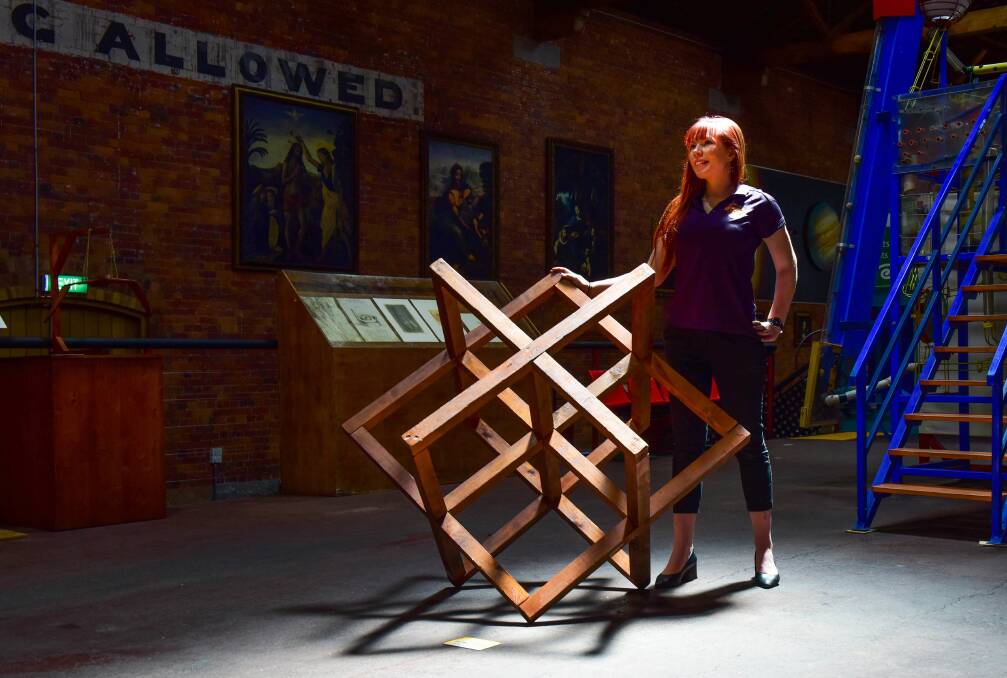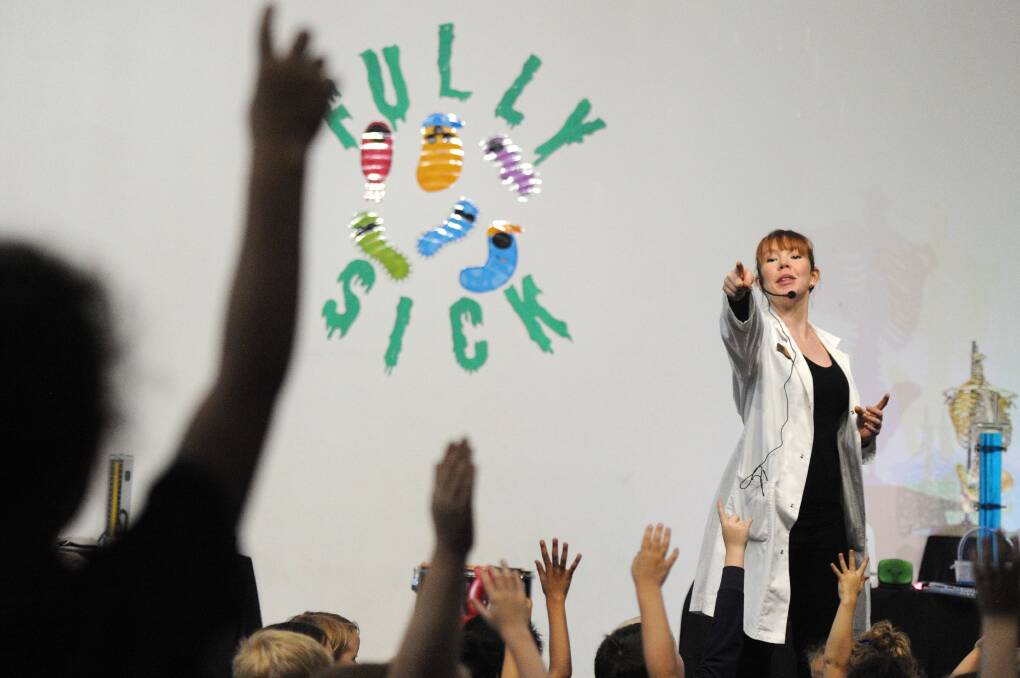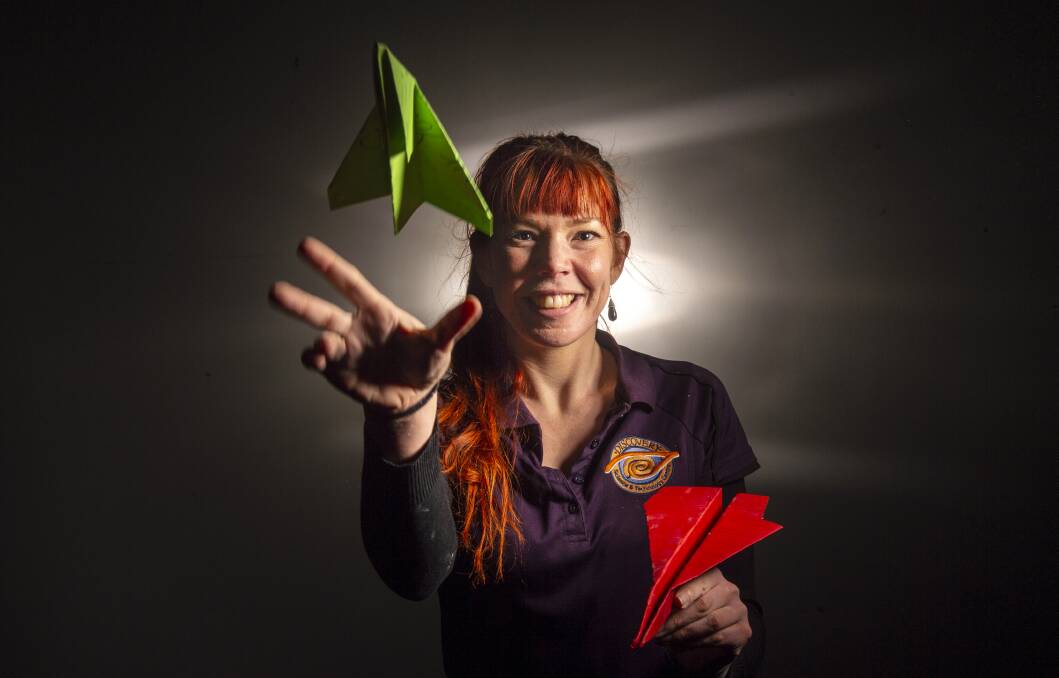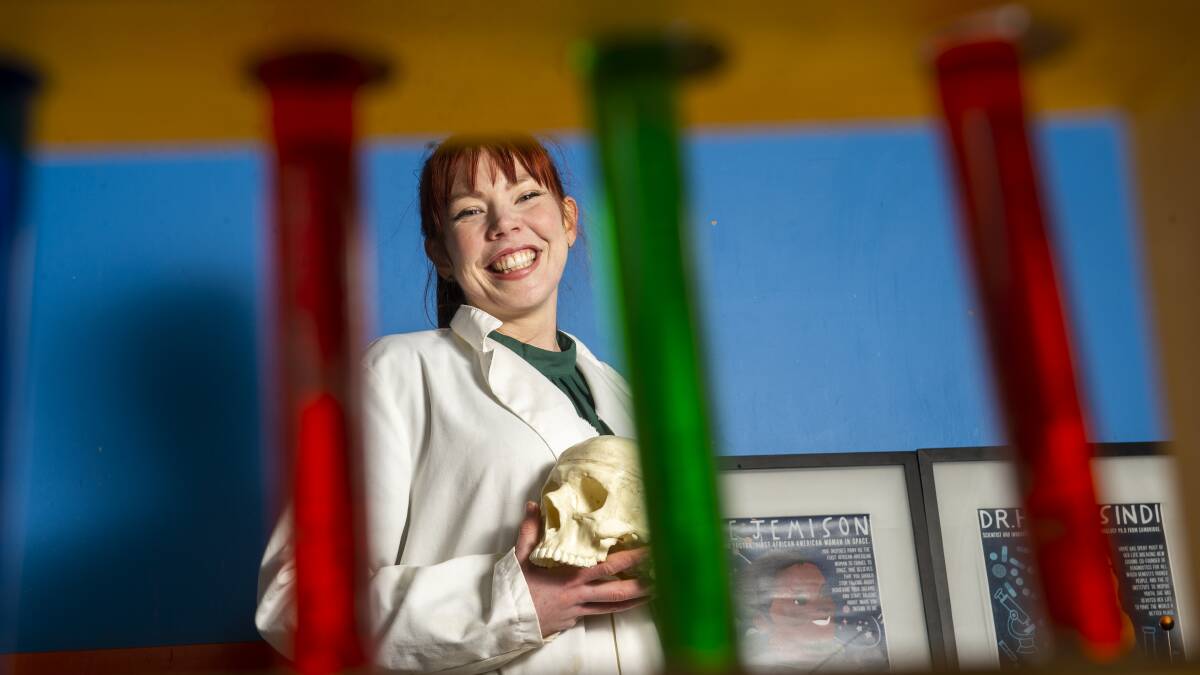ONLINE science sessions developed during the pandemic have helped Bendigo's Discovery Science and Technology Centre survive and thrive.
Subscribe now for unlimited access.
or signup to continue reading
The evolution of Discovery from a science-based attraction into more of an institution has been headed by general manager and science communicator Alissa van Soest.
"(Before COVID) Discovery was a fun, family day out - and it still is," Ms van Soest said. "But one of the big things we have changed, is we like to say 'we are an institution during the week and an attraction on the weekends'.
"COVID might have taken everything everyone worked for away but people went 'no, let's stick to our guns and do what always done. Let's provide STEM for all.'
"So many businesses suffered so badly and we have been extremely lucky. A big part of that is everyone's resilience and passion."
Ms van Soest and her team at Discovery went back to basics and ran Facebook livestreams and Zoom workshop sessions showing simple science experiments that can be around the home.
"It took off. People were trapped at home needed something fun and educational to do," she said. "They needed a community connection.

"It was such a hit that we got grant funding for it. That funding is still running. We're running those workshops but for small, remote and regional schools.
"It diversified what we do. It meant instead of COVID being the thing that closed Discovery, it ended up being the thing that meant we could reach more people than we ever thought we could."
Ms van Soest came to Discovery five years ago just after the science centre had been saved by the Bendigo community from potential closure.
She chose Bendigo over job at the Wellington Zoo and said it was the people that attracted her to the role.
"The thing that drew me was the people," she said. "This beautiful town, this lovely community and building full of people passionate about science communication.
"Science communicator groups online had seen the wave of people saying 'oh no, this science centre is closing' and then everyone starting to say 'we're not going to let it close'.
"(Discovery) had a national platform - I don't know if people realised that at the time. Me and others in Sydney were seeing how much the Bendigo community loved Discovery.
"So when I started here it was just after it had been saved."
Read more:
Ms van Soest has been a science communicator for more than 10 years. She was inspired to follow her career at science camp in year 11 following a presentation from a Questacon science communicator.

Since that science camp, Ms van Soest has toured Australia, Ireland and the United Kingdom as teaching simple science out of a suitcase.
"It's crazy to think it was so long ago now that I started heading out into the world doing science communication," she said.
"(Being a science communicator) just sounded so intensely fascinating and sounded like they were making so many impressions on people.
"After three-and-a-half years living out of that suitcase, I decided wanted to live out of closet and have postal address. Bendigo came up and the energy and enthusiasm of the people here was so perfect.
"It resonated so much with what I wanted and how I saw science communication."
Ms van Soest said programs that encouraged aspiring scientists and engineers from diverse backgrounds to get involved in the STEM fields were important.
"Often history shows us women and people from diverse backgrounds have been doing these roles and doing this science but once it becomes prestigious...you hand it to the people who had the power and are expected to do those things," she said.
"I don't know how many people have looked closely at Australian money, but David Unaipon on the $50 note is an Indigenous scientist and engineer who is considered the Australian Da Vinci in a lot of ways for his amazing designs.

"But lots of people have never heard his story even though he is one the money people use every day."
Read more:
Ms van Soest said a culture shift aimed at trying to recognise and provide more opportunities for people with diverse backgrounds to get involved in STEM fields was taking shape.
"It is something many people are out there are passionate about changing," she said. "But it is always a very slow process, which happens a lot when trying to make these important cultural changes.
"Education is always important but networks and not feeling alone (is something that should be improved).
"(There is) something called the leaky pipe where lots of people start off passionate when they are young but as they meet less and less people who are like them further and further down the line, they think (their passion) is not for them any more.
"If we can make those people more visible and create those networks so people don't feel alone, that's really important."

Among the programs offered by Discovery, one Ms van Soest is particularly passionate about is the Girls in STEM.
"We have really focused on that educational STEM for all," she said. "Not just kids, STEM for all ages. We are giving people an opportunity to connect with their curiosity.
"You have to see it to be it. So if we can have everyone who wants to do science and has a passion for STEM all connect. I have been really fortunate in having brilliant role models and being exposed to amazing women in STEM on all levels.
"The great thing about the more people, and more diverse people that we have in science is that you get new ideas and new experiences.
"Science is all about utilising all that knowledge and experiences that people have to make things better for everyone down the line."
Our journalists work hard to provide local, up-to-date news to the community. This is how you can access our trusted content:
- Download our app on iOS and Android
- Bookmark bendigoadvertiser.com.au
- Make sure you are signed up for our breaking and regular headlines newsletters
- Follow us on Twitter @BgoAddy
- Follow us on Instagram @bendigoadvertiser
- Join us on Facebook
- Follow us on Google News


